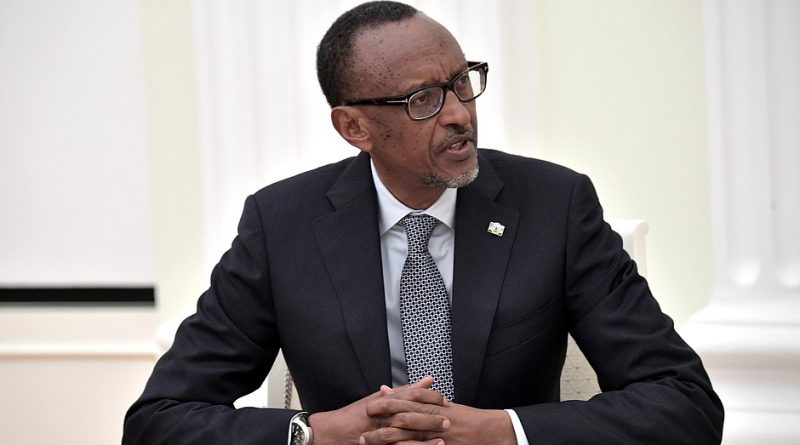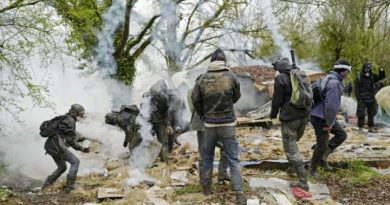Focus on Strongmen: Paul Kagame of Rwanda
Jarrett Dang
Staff Writer
Paul Kagame, the current president of Rwanda, took power in 1994 after the Rwandan Genocide, in which the majority Hutu ethnic group murdered an estimated 800,000 people from the Tutsi and Twa ethnic groups.
According to The Economist, Kagame runs one of the most repressive regimes in Africa, complete with secret police, censorship of the press, and complete political control with no meaningful opposition party.
Dissidents inside and outside the country mysteriously end up missing or dead. The BBC reports that Patrick Karegeya, a former intelligence chief and prominent critic of Kagame living in South Africa, was murdered in 2014 by suspected Rwandan agents after providing Tanzanian and South African forces with information about M23, a Rwandan-backed proxy army in the Democratic Republic of Congo.
Ordinary people in Rwanda live in fear of the Kagame regime and the absolute power that it wields. According to the New York Time Magazine, normal Rwandans are subject to overbearing regulations on everything from a ban on grass-roofed huts to not being allowed to dress in dirty clothes.
“Undesirables” like prostitutes and beggars are rounded up from the streets of Kigali, the capital, and beaten then sent to camps. Kagame’s government, which used this extremely strict and regimented system to bring order back to a country on the brink of collapse, still extends it to the present day and restricts citizen’s freedom to live their lives as they please.
A free press is nearly non-existent in Kagame’s Rwanda. Kagame’s government was instrumental in the death or disappearance of five journalists that criticized the regime, as well as causing 38 others to flee the country. An independent journalist named Gibson told his story to Foreign Policy, detailing the fear and threats of death that the government uses to keep him and his colleagues to keep quiet and in line.
Mr. Kagame has a knack for orchestrating the politics of Rwanda and ensuring that no opposition rises against him. His grip over the country is so tight that he received 98.78 percent of the vote in the 2017 presidential election. His control over the media, electoral opposition and freedom of speech creates an environment where it is almost impossible not to vote for Kagame.
Opposition candidates that run against Mr. Kagame are subject to bullying and investigations by the government. According to Amnesty International, three independent candidates were denied the ability to run in the election by the National Electoral Commission.
One presidential hopeful, Diane Rwigara, had nude photos of her posted online and was arrested shortly after for “inciting insurrection or trouble among the population.”
Kagame’s government recently amended the constitution to allow him to rule until 2034. The move came in the wake of a petition that was signed by 3.5 million people, 60 percent of the electorate, demanding that Kagame be allowed to run for a third 7-year term as well as two additional 5-year terms after that.
The Council on Foreign Relations holds that this petition was not freely or fairly circulated; the government recorded people’s names and addresses if they refused to sign.
Yet, Mr. Kagame is not like the regular African strongman that pillages the country and takes for himself; rather, he has brought Rwanda from the brink of becoming a failed state to becoming one of the least corrupt countries in Africa with strong economic growth and a seemingly successful recovery from the genocide.
Tackling corruption has been an impressive achievement of Kagame’s. According to Transparency International’s Corruption Perceptions Index, Rwanda scored 55 out of 100, which is remarkable for an African nation and even ranks above some developed nations. For example, South Korea scored 54 out of 100 and Italy scored 50 out of 100.
Economic development is also one of Mr. Kagame’s achievements. Under his leadership, Rwanda’s business sector is booming, foreign investment is high, and GDP is growing at almost 8 percent per year.
The World Bank has given Rwanda a score of 41 on its Ease of Doing Business Index, ranking it above advanced economies such as Italy and Mexico and just slightly under Japan. Annual per-capita income in Rwanda has also increased substantially since Mr. Kagame took power, up from just $150 in from 1994 to $700 today.
Once he took control of Rwanda, Kagame went to work on unifying the country and preventing it from falling into anarchy. One of the ways that he did so was to institute a number of national “reciliation and remembrance” policies that took aim at the societal divisions that tore the country apart before.
Foreign Affairs says that after the genocide, Kagame jailed over 120,000 suspects, constructed re-education camps that would teach citizens about the horrors of the genocide, and emphasized national unity regardless of ethnicity. The results of this program seem to indicate a level of societal healing that few thought possible in 1994; Hutus live next to Tutsis in peace again and most want to forget about the past and move on with their lives.
Paul Kagame’s iron grip over the country seems to have turned out dividends for Rwanda for the price of despotic one-man rule. The improved economic situation and impressive societal recovery from the genocide are crowning achievements of Kagame’s rule. His oppressive rule, however, strips ordinary Rwandans of personal freedoms in exchange for post-conflict civility.


